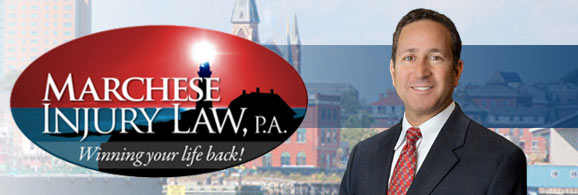Boat Accidents and Ferry Accidents in Maine
Maine is a state filled with water. We are talking about 32, 000 miles of rivers and streams, more than 3,000 miles of coastline (most of any state in the USA) and 6,000 ponds and lakes. Boating adds an estimate of $153 million to the state’s economy each year with over 100,000 boats and water crafts registered in Maine today. This volume of boating activity in Maine is a prime scenario for boating accidents, ranging from a small sand bar all the way up to a fatality from negligent operation of the boat.
Maine is a state filled with water. We are talking about 32, 000 miles of rivers and streams, more than 3,000 miles of coastline (most of any state in the USA) and 6,000 ponds and lakes. Boating adds an estimate of $153 million to the state’s economy each year with over 100,000 boats and water crafts registered in Maine today. This volume of boating activity in Maine is a prime scenario for boating accidents, ranging from a small sand bar all the way up to a fatality from negligent operation of the boat.
Every year thousands of people are killed or injured due to boat malfunctions and boating accidents. Five thousand recreational accidents were recorded in the United States in 2008 and that number is showing signs of growth every year after (official numbers are not fully released yet). The United States Coast Guard report shows these accidents resulted in 3,000 injuries, 700 deaths and $54 million in property damage. Over 500 were from victims who drowned without wearing a life jacket.
Powerboats, cruisers, jet skis and sailboats are the most frequent types of watercraft involved in boating accidents. You may personally know how to navigate your vessel. This however does not mean other boaters share your knowledge or caution. The number one cause of boating accidents is careless operation of boats. The top seven leading causes of boating accidents are:
- operational inattention
- sharp turns
- equipment/engine failures
- excessive speed
- operator inexperience
- improper lookout
- alcohol use
- restricted vision
A little education can therefore make the difference between life and death when it comes to boating safety. The U.S Coast Guard highly recommends that every boat owner take an official course in boater education. Know what the buoys and markers indicate for boat traffic regarding the existence of hazards, speed and direction of travel into and out of harbors, bays and coves. Before Mainers shove off from the land they should ensure their boats are in proper working order and have a current registration sticker from the state. Each boat should have one life jacket for each passenger on board. An emergency kit should be carried at all times with a cell phone Someone who is not on your boat should be informed of where the boat is heading and be told when to expect the boat to return. With any potential for night travel, boat lights should be tested before leaving the dock. Each boat should have an anchor and a captain who knows how to use it. Boat speed should be reduced when approaching other boats and swimmers. Most boat accidents are alcohol-related, so drinking must therefore be kept to a minimum. As with motor vehicle operation on roads, it is illegal to operate a boat while impaired or with a blood alcohol level over 0.8%.
Accidents and deaths can result from boarding or disembarking from ferry boats, drifting, cruising, towing, reckless docking, and sudden changes of direction or speed. The most common kinds of boat accidents include collision with swimmers, boats, watercraft, fixed objects, passengers slipping due to a wet or uneven surface, bad weather mishaps, boat fires and capsizing accidents. Boating accidents often occur in rough water with large swells or choppy water conditions that can cause larger ferries and smaller boats to rise and fall in jerking motions, flooding or swamping the boat, often resulting in accidents or personal injuries to passengers.
Commercial fishing boats have their own history and risks of boating accidents and injuries. Negligence or defective equipment and machinery are all too common and frequently major contributors to commercial fishing boat accidents that result in seamen’s injury or death. Fishing boat accident injury can involve equipment such as winches, scallop dredges, bait choppers, fishing nets, lobster lines, and cranes. Regardless of how dangerous the job is, employers are required to ensure vessel and equipment safety and have proper procedures to limit injury–and that includes commercial fishing vessels, lobster boats, crab boats, shrimp diggers, scallopers and herring seiners. The Jones Act, admiralty law’s version of worker’s compensation law, entitles injured commercial fishermen to compensation, including maintenance (lost income) and cure (medical payments), when negligence is a factor. In cases where injuries are so severe that you cannot return to your vocation, you may be entitled to even more compensation, which requires an expert litigator who understands maritime law.
Victims of a boat accident or a ferry accident should contact a Maine personal injury attorney with years of experience and knowledge of maritime laws who will work hard for victims and their families. If you or a loved one has been injured in a boat accident then contact Marchese Injury Law. We can help you. Call us Toll Free at (888) 775-6042 or locally at 775-6042. The offices are located at 477 Congress Street Suite 1104, Portland, Maine.




